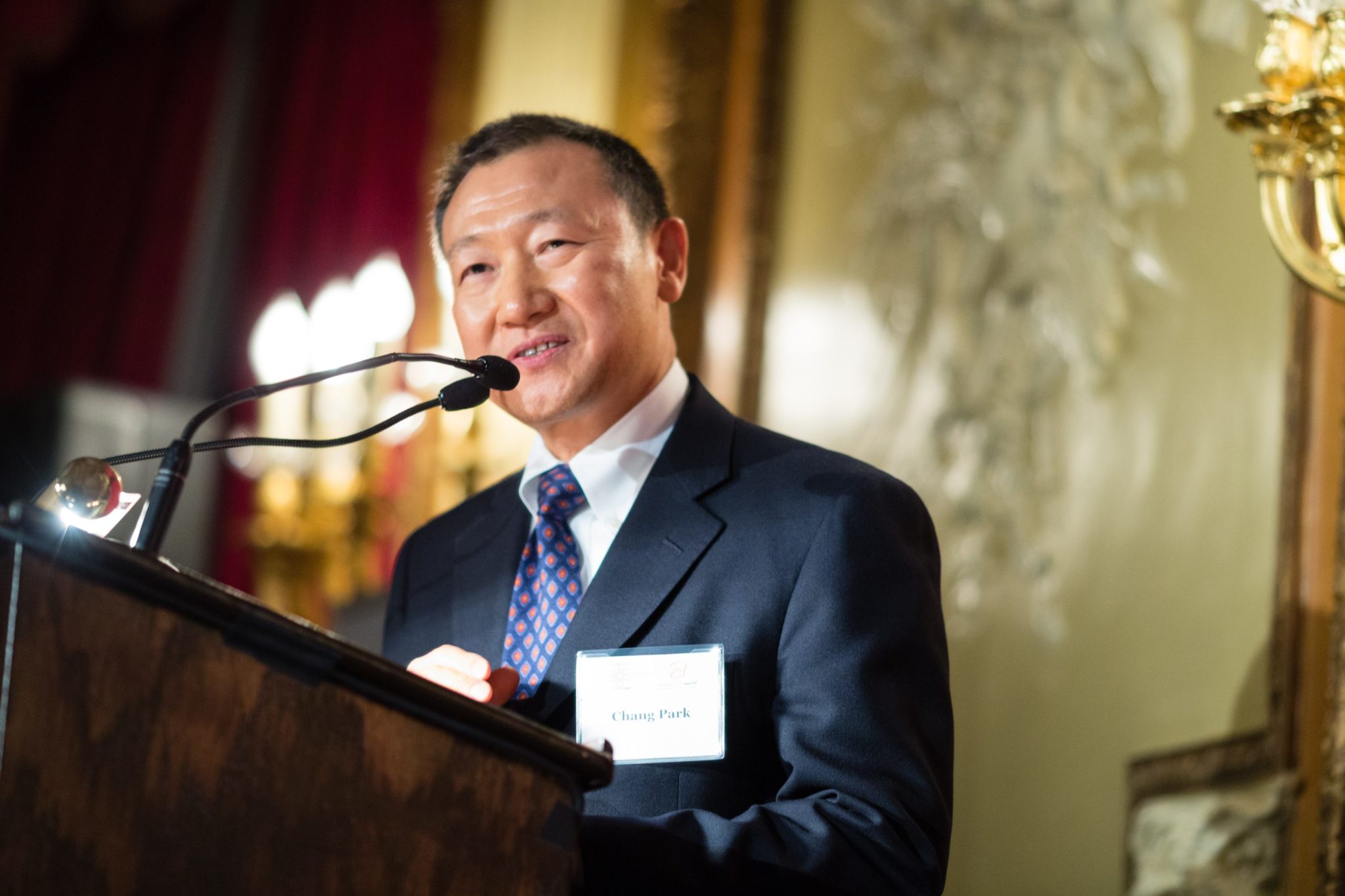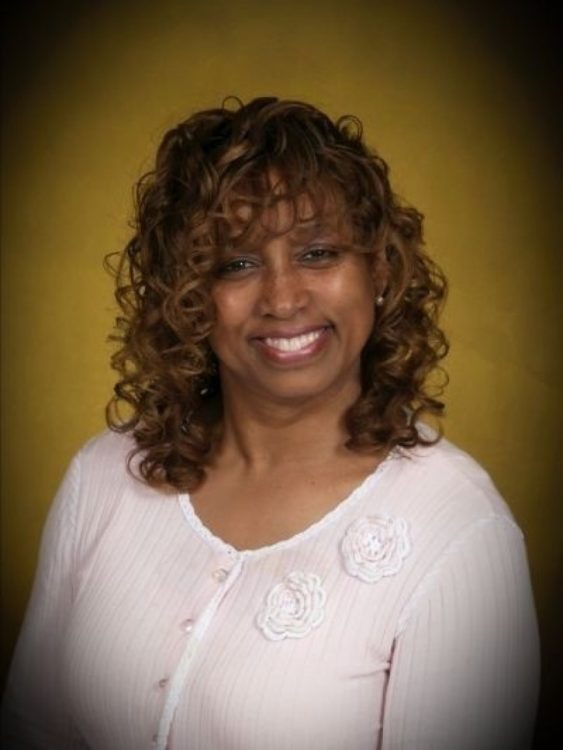This article was originally published in the July-August 2013 issue of Bread newsletter.
Early one morning during Bread for the World’s 2013 National Gathering, Chang K. Park laced up his running shoes and took a jog around the National Mall. He stopped at the Korean War Memorial and read its inscription:
“Our nation honors her sons and daughters who answered the call to defend a country they never knew and a people they never met.”
Those words mean a lot to Park, whose parents escaped from North to South Korea as refugees when the country was divided, and again after the war broke out. “It touches me very much,” says Park of the words etched on the memorial. “I think that it symbolizes the humanity of this nation.”
Park is not only grateful for the military support that the United States gave to South Korea; he is also thankful for the programs and people that helped feed the nation and rebuild it: “Our generation—people who received all of that benefit—has a loving memory of the United States for providing that humanitarian aid.”
“I remember when I was in elementary school,” says Park, “the teacher would ask us to bring in a bag. I didn’t have a bag, so I would fold the newspaper and glue the edges.
“The next day after class the teacher would line us up outside the storage room. Inside was a huge paper drum with the USAID [U.S. Agency for International Development] logo. I remember that logo with the shaking hands and shield. In that drum was powdered milk. They would shovel that powdered milk into our bags, and they asked us to take it home and boil it and drink it. That was our source of nutrition.”
“That image still remains with me,” Park says quietly. “We were quite poor. But everyone was poor after the war, so I thought it was normal at that time.” The annual income per capita in South Korea was just $80 in the 1960s, which explains Park’s memories of children subsisting on little more than boiled potatoes.
“Those days are over for South Korea, but there are still many people and many countries going through that. And that is why Bread for the World is so important,” he says.
During those tough years, Park was also impressed by the missionaries, many of whom came from the United States, to help build hospitals, orphanages, and schools—and provide food for the extreme poor “I felt as a child that if these people are doing all of these good things for God, then I am in favor of that,” says Park. “In that sense I have been a member of Bread even before Art [Simon] founded Bread nearly 40 years ago.”
Now a Bread for the World board member and a congregant at the Riverside Church in New York, Park came to the United States as a teenager, with just $200 to his name. He earned a bachelor’s degree in electrical engineering from Michigan Tech and a master’s in business administration from the Wharton School at the University of Pennsylvania. After stints in engineering and banking, Park founded Universal Remote Control in the mid-1980s, where he is still the president and chief executive officer.
Despite his success, Park has never forgotten the hunger that he saw all around him in his youth. When he saw Bread President David Beckmann speaking on the PBS News Hour two years ago, he was struck by Beckmann’s statements about the large and important role of government in alleviating hunger: less than 5 percent of food assistance comes from all the charitable organizations combined; federal nutritional programs account for more than 95 percent.
“I told myself, ‘That’s an organization that I want to work with.’”
“I tell people that what Bread does is like trying to direct the water from upstream. What charitable organizations and local government do downstream in the field is very important, but it is also important that Bread directs the resources from upstream to the field. I believe it is important that how our government spends our taxes reflects our priorities.”
Park continues to expand his understanding about hunger. In March of this year, he was struck by several realities presented in “A Place at the Table,” the documentary about hunger in the United States that was launched at the same time as Bread’s 2013 Offering of Letters.
“I realized through that movie that these are hard-working people, some of them have two jobs, who cannot make ends meet. In fact, during that movie, one fellow appears with his uniform, a deputy sheriff, saying that he has to rely on the local food bank to feed his family. He seemed to be quite embarrassed by it.
“I thought, ‘You should not be embarrassed; WE should be embarrassed as a society for not providing for your basic needs while you are providing us with security.’”
Watching the documentary, Park was also struck by the burden that hunger can place upon children. Malnourished children tend to be stunted physically and suffer from poor brain development.
“God gave talents to both rich and poor, and when the poor children cannot develop their brains due to hunger, it is a lost potential for society,” Park explains. “They could be a future Abe Lincoln, Thomas Edison, or Albert Einstein that we will not have. As I recall, President Obama’s mother was a beneficiary of food stamps—and that means that we could lose a future president because we could not feed them,” Park points out.
“When a child is not fed properly and all they can afford is a junk food, they develop all types of health problems such as obesity, heart disease, diabetes, high blood pressure and host of other conditions. Society has to take care of their health throughout their lives, and it becomes a burden to society,” says Park, “So it is an extremely good investment to feed them properly early on when they are children.”
Park sees food assistance as the moral response to people who suffer from hunger. It is also the imperative spiritual response of the faith community. He says that we now look back at so much sufferings that happened in the past and we wonder how people could have allowed them to happen.
“I hope we will be in a position someday to look back and ask this generation why it is that there was an abundance of food and yet we allowed so much hunger to exist among us.”
Photo: Chang K. Park speaks at Bread for the World’s annual gala in New York City in November 2014. Bread for the World photo by Hunter Willis
I remember my mother saying that there are a number of sadnesses in life, and the saddest of all sadness is when you don’t have enough to eat.



